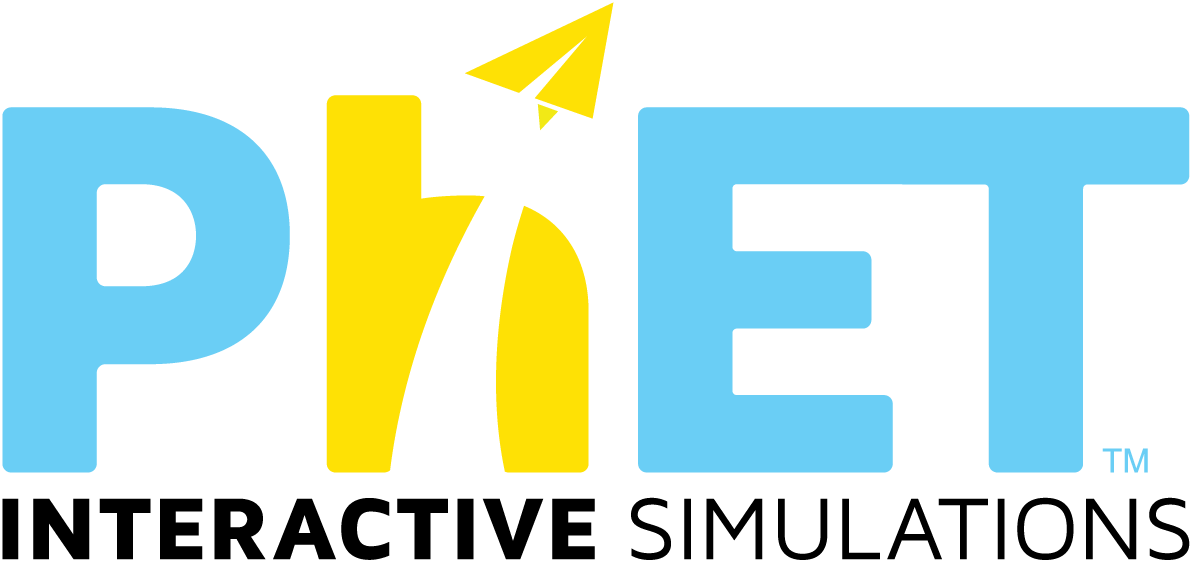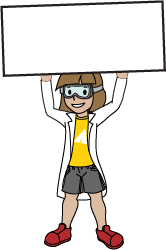Creating PhET Interactive Simulations Activities
PhET's Approach to Guided Inquiry
The PhET Interactive Simulations Project, http//phet.colorado.edu provides simulations (sims) specifically designed and tested to support student learning. However, what students do with the sims is as important as the simulations themselves. PhET sims may be used in many different types of activities but we believe the sims are most effective with activities which use guided inquiry enabling students to construct their own understanding. In order to productively support student exploration, we suggest:
-
Дефинисати специфичне циљеве учења
The learning goals need to be specific and measurable. It is important that the activity goals are well-defined for your particular standards and student population because each sim is designed to support many possible learning goals. -
Дајте само минимална упутства за коришћење симулација
The sims are designed and tested to encourage students to explore and use sense making. Recipe-type directions can suppress active thinking, resulting in a focus on following directions and answering questions correctly. For example, in a sim about motion, avoid instructions such as "set the gravity to zero;" instead provide a challenge like, "Find out what affects the speed of the Skater." -
Повезујте се са претходним знањем и разумевањем ученика и дограђујте их
Ask questions to elicit student ideas about the topic. For example, to start using a sim about dissolving ask: "What might happen if you add a lot of salt to water?" and "Do you think it matters what solid you add to water?" Guide students to use the simulation, and discussion with their partner, to test those ideas and resolve any inconsistencies. -
Охрабрујте ученике да доносе одлуке и образлажу их.
The sims are designed to help students develop and assess their understanding and reasoning about science topics. The activity should be geared towards encouraging the student to operate in learning mode not performance mode. Emphasize questions that require making sense of the simulation topic and ideas, using words and diagrams, rather than questions with right/wrong answers. For example, "Design an experiment to see what relationships you can find between how hard you push a box and how fast it will move. Make a data table and a graph to help explain your ideas," and "How might your graph change if the box had a person sitting on it? Explain your reasoning." -
Повезујте са реалним искуствима из свакодневног живота
Students learn more when they can see that science is relevant to their everyday life. The sims often use images from everyday life, but where possible the activity should explicitly help them relate science to their personal experience. As you write questions, consider their interests, age, gender, and ethnicity and use friendly language. For example, when using a simulation that uses a sandwich metaphor for balancing chemical equations, you might ask, "If you were talking to your friend, Rose, about making sandwiches, what would you tell her to do to figure out how many sandwiches she can make from 10 pieces of bread?" -
Креирање заједничких Активности
The sims provide a common language and experience for students to collaboratively construct their understanding. Students can learn more when they communicate their ideas and reasoning to each other. Have students work in pairs or groups. Encourage students to share their ideas with their partner, working together to answer questions. Invite students to share ideas during whole class discussions. -
Помажите ученицима да сагледају сопствено разумевање
Provide opportunities for students to check their own understanding. One way is to ask them to predict something based on their new knowledge and then check the prediction with the simulation.
Want to find activities that exemplify these strategies? Look for Gold Star activities when browsing activities at https://phet.colorado.edu/en/for-teachers/browse-activities.


